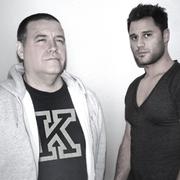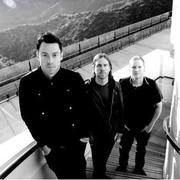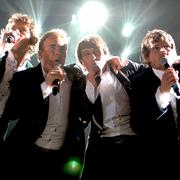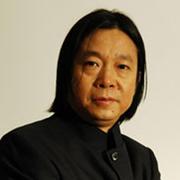Bush
| 基本信息 | |||
|---|---|---|---|
| 姓名 | Bush | 别名 | 暂无 |
| 国籍 | 英国 | 出生地 | London, England, United Kingdom |
| 语言 | 英语 | 性别 | 组合 |
| 生日 | 1992 | 星座 | |
| 身高 | 体重 | ||
Bush 于1992年组建,由吉他/主唱 Gavin Rossdale 领导,是继 Nirvana 后第一支在美国走红的英国乐队。乐队的第一张专辑《 Sixteen Stone 》由 Interscope 唱片公司于1993年发行。同年10月底,单曲《 Everything Zen 》在 MTV 播出,专辑也开始热销。1995时乐队已在美国取得很大成功,但在英国的成绩却略逊一筹。1995全年《 Sixteen Stone 》在美国都十分热门,单曲《 Little Things 》在春天达到现代摇滚乐排行榜榜首第4名,同年晚些时候《 Comedown 》和《 Glycerine 》都达到此榜榜首,并进入Top 40 。但很快 Bush 遭到新闻界和非主流摇滚圈内人士的白眼,他们认为乐队是拼凑起来的。为反击此种指控,乐队邀请了曾为 Pixies , Nirvana 和 PJ Harvey 等担任制作的 Steve Albini 指导新专辑。《 Razorblade Suitcase 》于1996年圣诞节发行,登上美国榜首,并在英国小有作为。《 Razorblade Suitcase 》受到的评论众口不一,但好于《 Sixteen Stone 》,1997年春,达双白金销量。电子合成的翻版单曲合集《 Deconstucted》于1997年下半年发行。by Stephen Thomas ErlewineLed by guitarist/vocalist Gavin Rossdale, Bush became the first post-Nirvana British band to hit it big in America. Of course, they became a hit by playing by the grunge rules — they had loud guitars, guttural vocals, stop-start rhythms, and extreme dynamics. Formed in late 1992 by Rossdale, Bush landed an American record deal before they had a British label. Sixteen Stone, their debut album produced by Clive Langer and Alan Winstanley (producers of early-80s hits by Madness and Elvis Costello, among others), was released in late 1994 by Interscope Records. By the end of December, Bushs Everything Zen video had landed in MTVs Buzz Bin and the album began to take off; by spring of 1995, the record had gone gold, despite a stack of bad reviews. By that time, the band was successful enough in the U.S. to land a British record deal, although they werent able to match their American success in the U.K. Over the course of 1995, Sixteen Stone became a major hit in the U.S., with Little Things reaching number four on the modern rock charts in the spring; later that year Comedown and Glycerine both reached number one on the modern rock charts, as well as crossing over into the pop Top 40. Despite their success, Bush received scathing reviews from the press and many alternative rock insiders who believed the group was manufactured. To counter such charges, the band asked Steve Albini — notorious for his abrasive productions for not only Pixies, Nirvana, and PJ Harvey, but also countless indie bands — to helm its second album. The resulting album, Razorblade Suitcase, was released in time for the Christmas season of 1996. Razorblade Suitcase was greeted with mixed reviews that were nevertheless more positive than those surrounding Sixteen Stone, and the album entered the U.S. charts at number one, as well as made some headway in the U.K. However, by the spring of 1997, the album had stalled somewhat, producing only one major hit in Swallowed, and reaching only double platinum status. Deconstructed, a collection of electronic remixes, appeared in late 1997, and in the fall of 1999 Bush returned with The Science of Things. In late 2001, they went back to basics with the guitar-driven album Golden State. Although it didnt storm the charts like previous albums, fans still supported Bush. A sold-out tour across North America followed. During this time, Helmet guitarist Chris Traynor was added as a touring member. Shifts within the band, however, took a sharp turn several months later when founding member Nigel Pulsford announced his departure in May. Pulsford, who had started a solo career as well as a new family, left without much drama and disapproval. Traynor stepped in to fill his shoes.
 加载评论内容,请稍等......
加载评论内容,请稍等......













